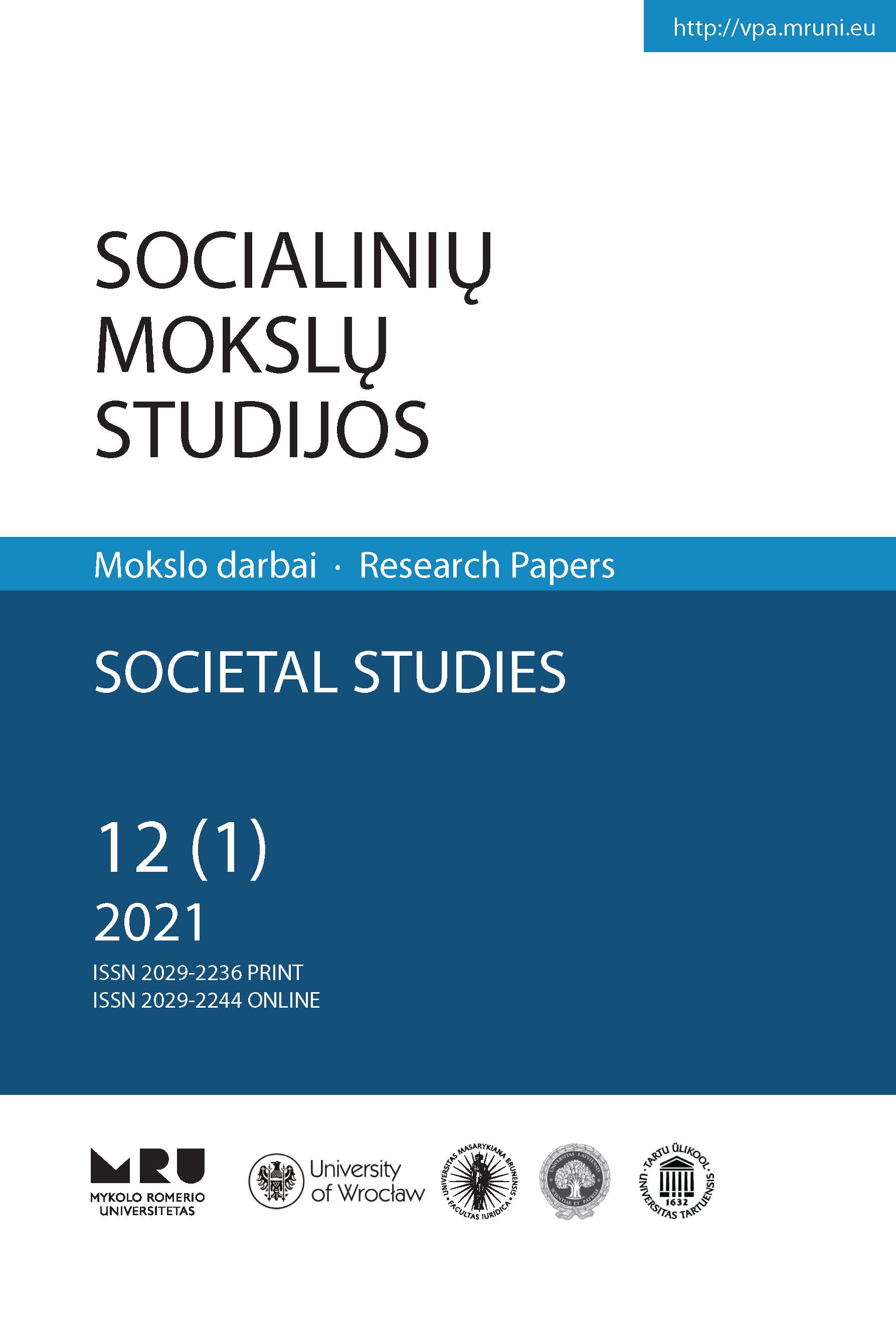SAVIGARBOS REIKŠMĖ PYKČIO KONTROLĖS INTERVENCIJŲ EFEKTYVUMUI, MAŽINANT PYKČIO KONTROLĖS SUNKUMUS 12–17 METŲ PAAUGLIAMS
THE IMPORTANCE OF SELF-ESTEEM IN THE EFFECTIVENESS OF ANGER CONTROL INTERVENTIONS TO REDUCE ANGER CONTROL DIFFICULTIES AMONG ADOLESCENTS AGED 12–17
Author(s): Dovilė Valiūnė, Aidas PerminasSubject(s): Education, Psychology
Published by: Mykolas Romeris University
Keywords: self-esteem; anger control;aggressive behavior; effectiveness of intervention;adolescents;
Summary/Abstract: Adolescent anger is an important issue, given the incidences of school violence (Fives et al., 2011). According to the report of the Health Behavior in School-aged Children study, the number of Lithuanian adolescents participating in one or more physical fights in the past 12 months was above the European average (Currie, 2016). Hence, there is a great need to research the potential of interventions to reduce the anger control problems of students in Lithuania. It is also important to establish the variables that influence the strength of a relationship between intervention and a positive anger control outcome. One of these variables could be self-esteem, as one of the functions of anger is to restore self-esteem when it has been damaged (Lök et al., 2018). Hence, self-esteem could serve as a moderator between anger control interventions and positive anger control outcomes.The goal of this research is to evaluate the importance of self-esteem in the effective- ness of anger control interventions in reducing anger control difficulties among adolescents aged 12–17 years in schools. This study followed a pre-test, post-test design, with three groups. The first intervention was based on cognitive-behavioral theory (CBT). The second intervention was based on mindfulness-based cognitive-behavioral theory (MCBT) for anger-management, as developed by Kelly (2007). In total, 599 (256 male and 343 female) adolescents, aged between 12 and 17, from 26 regular schools participated in this research. Schools were selected based on convenience, and in each school one cohort was randomly assigned to the CBT group (N = 205 pupils), the MCBT group (N = 155 pupils), and the control group (N = 239). State-Trait Anger Expression Inven- tory-2 for Child and Adolescent (Brunner and Spielberger, 2009) and Rosenberg’s self- esteem scale were used in this research. Hierarchical linear regression found that MCBT intervention was more effective for girls and CBT intervention was more effective for boys in improving anger control among students with a lower level of self-esteem.
Journal: Socialinių mokslų studijos
- Issue Year: 12/2021
- Issue No: 1
- Page Range: 155-172
- Page Count: 18
- Language: Lithuanian

